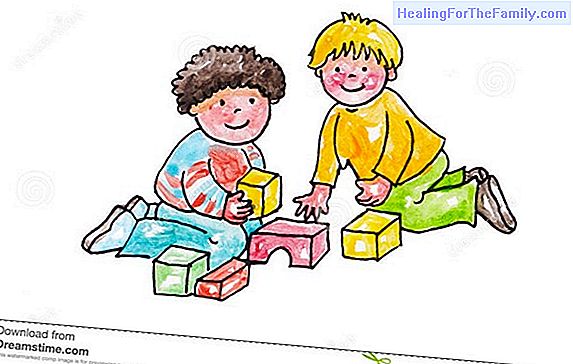How to educate the emotions of children
Parents can teach children to channel their emotions and identify them. It is important that children learn to control themselves and empathize with others. Emotional education is part of the child's education. The psychologist Silvia Álava, in this interview with Guiainfantil.com , clarifies what e
Parents can teach children to channel their emotions and identify them. It is important that children learn to control themselves and empathize with others. Emotional education is part of the child's education. The psychologistSilvia Álava, in thisinterview with Guiainfantil.com, clarifies what emotional intelligence consists of, how it can be measured in children and how to educate their emotions and feelings to make them happier.
Educate the emotions and feelings of children

How can parents educate the emotions of children?
Parents can help educate their children's emotions, of course they do. But it will be even more effective if we do it with a correct emotional education program. Because these emotional education programs have been shown to have a positive effect on psychological adjustment, on academic performance and on social relationships, and also reduce aggression behaviors.
It is important that parents work with children on the importance of communication, that they learn to express their emotions, to say how they feel. You also have to work on empathy: knowing how you feel but also how the other person is feeling. When we work on empathy, when we are empathetic, that will help us a lot in our social relationships, it will help us to understand how the other feels, and the moment we understand that, it will facilitate us, what is the behavior that We must have, and this has to be educated from very young.
How to teach children to channel their feelings?
One of the most important things is to tell them what they will not allow: screaming, shouting, kicking or throwing a tantrum. If the child sees that channeling the emotion in that way, which is through the tantrum or through an emotional outburst, that has an audience, that behavior is being reinforced, then the first thing we have to do is eliminate that reinforcement.
Work from what in psychology we call extension. Tell him that this behavior is not going to be valid at all and that when he does that the same thing is going to stay up for a while on his own. Until we eliminate this positive part that the tantrum may have for the child, the child will not be able to learn to regulate his emotion in another way. Maybe just saying, hey, it's true that I feel bad, but it's already there, I let it go and I start doing something else.
How and when do we have to teach children to control their emotions?
Children can be taught to control emotions from a very young age, they must be taught to tolerate frustration. The first thing is that they perceive it. We can say to the child: "I understand that you are angry because you can not take the candy but now you do not have to take it."
Since they are little they are helped to control their emotions and, fundamentally, when they are young we are going to focus a lot on that they are able to recognize the emotions that they know when they are happy that they know when they are sad, that they know when they are angry, that they know when they are afraid, that they know how to verbalize it, and also tolerance to frustration, this is something that what to learn from the earliest childhood
What kind of emotional capacities should the parents of their children reinforce?
If we look at this model we are talking about the 4 factors of emotional intelligence, it would be:
- that children learn to to perceive their own emotions, both their own and those of others
- to learn to understand emotions, what is happening to them and to others.
- that those emotions they also facilitate their behavior
- that they learn to manage and channel them.
These would be the basic pillars of emotional competences that must be worked with children. Let's not forget to favor a good climate of trust very well, that there may be good communication. That the children since childhood can communicate and can say how they feel. You have to ask the children how they feel but also how they think the parents are feeling or a friend. These are things that are easy and can be learned by children, and that parents can teach them since they are small.












